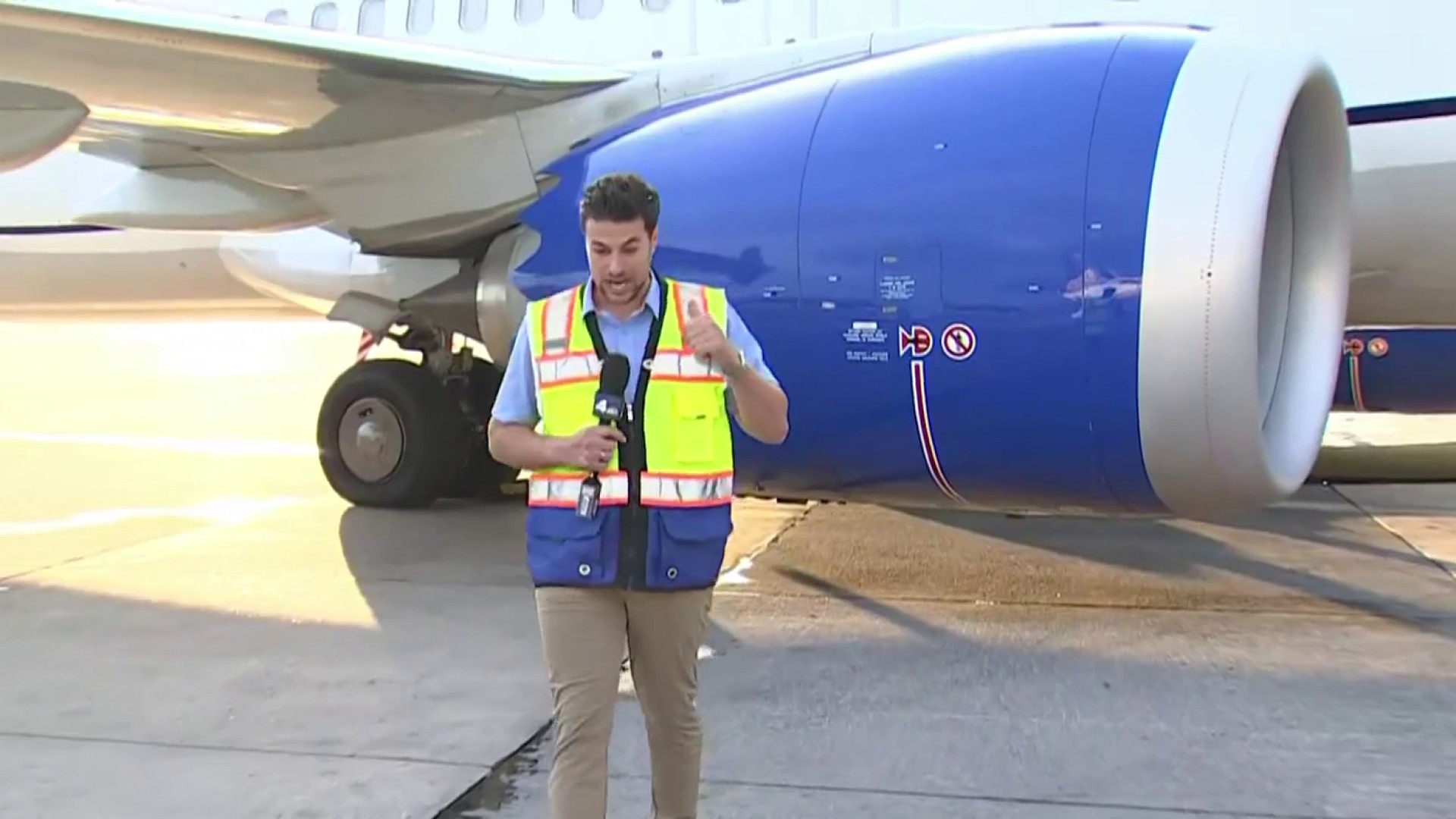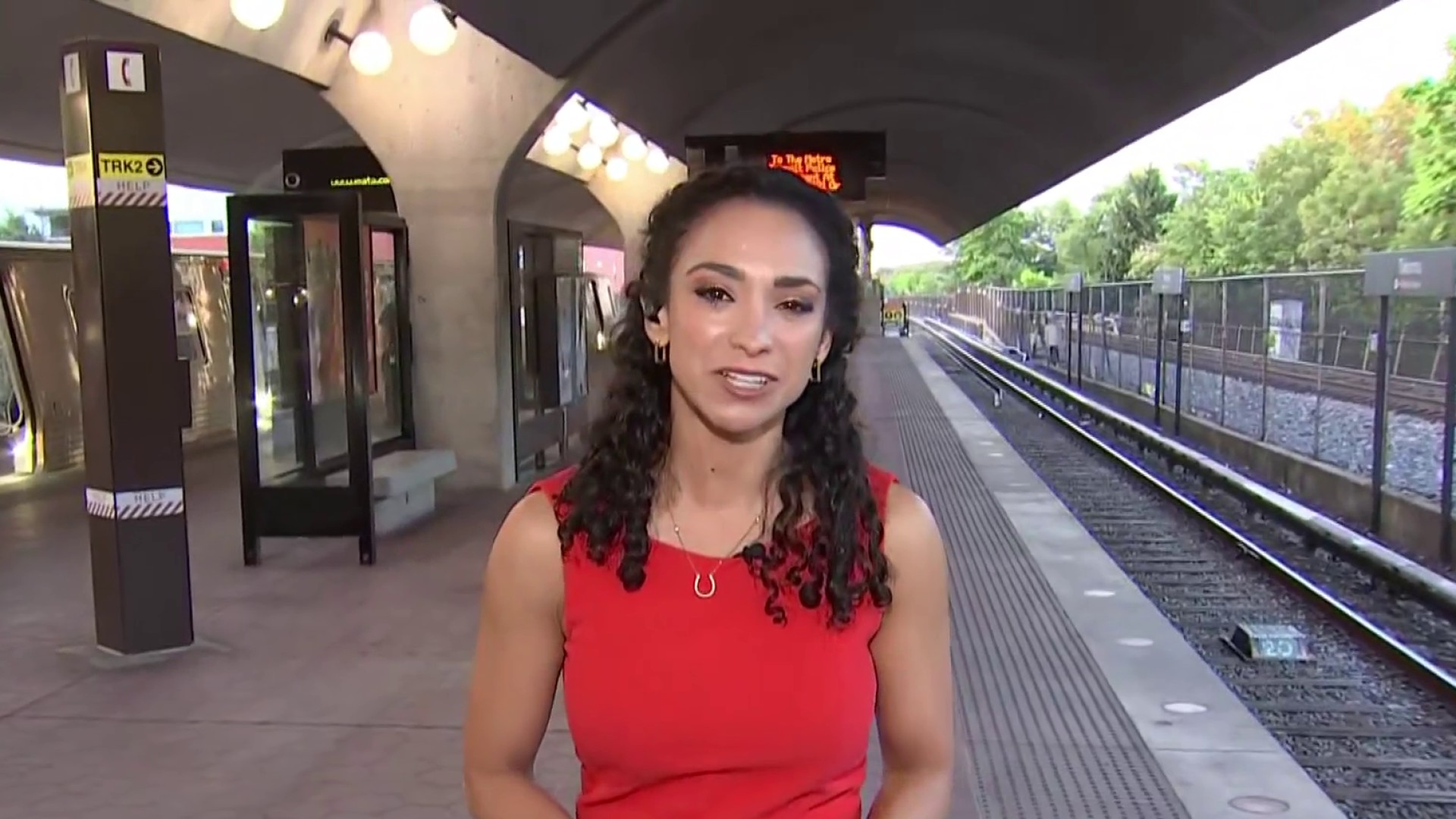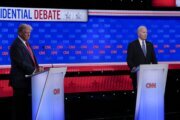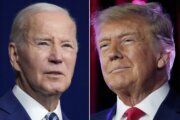

D.C. Law 24-330. Tourism Recovery Tax Temporary Amendment Act of 2022.
To amend, on a temporary basis, Title 47 of the District of Columbia Code to increase the tax rate on certain gross receipts, the revenue from which is dedicated to the Washington Convention and Sports Authority for transfer to Destination DC, for a specified period to provide support for the recovery of tourism in the District, and to require Destination DC to meet specified requirements.
BE IT ENACTED BY THE COUNCIL OF THE DISTRICT OF COLUMBIA, That this act may be cited as the "Tourism Recovery Tax Temporary Amendment Act of 2022".
Sec. 2. Section 47-2002.03a of the District of Columbia Code is amended as follows:
(a) Subsection (a) is amended as follows:
(1) Designate the existing text as paragraph (1).
(2) The newly designated paragraph (1) is amended by striking the phrase "A tax," and inserting the phrase "Except as provided in paragraph (2) of this subsection, a tax," in its place.
(3) A new paragraph (2) is added to read as follows:
" (2) For the period of time beginning on April 1, 2023, through March 31, 2027, the tax imposed by paragraph (1) of this subsection shall be at the rate of 1.3%.".
(b) A new subsection (d) is added to read as follows:
" (c) For the expenditure of any tax revenue received pursuant to subsection (a)(2) of this section, Destination DC shall:
" (1) Comply with the requirements of section 2346 of the Small, Local, and Disadvantaged Business Enterprise Development and Assistance Act of 2005, effective October 20, 2005 (D.C. Law 16-33; D.C. Official Code § 2-218.46) ;
" (2) Consult with the Deputy Mayor for Planning and Economic Development, the Washington Convention and Sports Authority, the Restaurant Association Metropolitan Washington, and the Hotel Association of Washington, DC on the use of any tax revenue received; and
" (3) Enter into a memorandum of understanding with the District regarding the use of any tax revenue received pursuant to subsection (a)(2) of this section in accordance with the recommendations determined necessary and appropriate pursuant to the consultations required by paragraph (2) of this subsection.".
Sec. 3. Section 47-2202.03 of the District of Columbia Code is amended as follows:
(2) The newly designated paragraph (1) is amended by striking the phrase "A tax," and inserting the phrase "Except as provided in paragraph (2) of this subsection, a tax" in its place.
" (2) For the period of time beginning on April 1, 2023, through March 31, 2027, the tax imposed by paragraph (1) subsection shall be at the rate of 1.3%.".
(b) A new subsection (e) is added to read as follows:
" (e) For the expenditure of any tax revenue received pursuant to subsection (a)(2) of this section, Destination DC shall:
" (2) Consult with the Deputy Mayor for Planning and Economic Development, Washington Convention and Sports Authority, the Restaurant Association Metropolitan Washington, and the Hotel Association of Washington, DC on the use of any tax revenue received; and
Sec. 4. Fiscal impact statement.
The Council adopts the fiscal impact statement of the Budget Director as the fiscal impact statement required by section 4a of the General Legislation Procedures Act of 1975, approved October 16, 2006 (120 Stat. 2038; D.C. Official Code § 1-301.47a).
Sec. 5. Effective date.
(a) This act shall take effect following approval by the Mayor (or in the event of veto by the Mayor, action by the Council to override the veto), a 30-day period of congressional review as provided in section 602(c)(1) of the District of Columbia Home Rule Act, approved December 24, 1973 (87 Stat. 813; D.C. Official Code § 1-206.02(c)(1)), and publication in the District of Columbia Register.
(b) This act shall expire after 225 days of its having taken effect.
Law Information
- D.C. Law 24-330 ( PDF )
- D.C. Act 24-787 ( PDF )
- 70 DCR 1036
Mar. 10, 2023
Legislative History ( LIMS )
Law 24-330, the “Tourism Recovery Tax Temporary Amendment Act of 2022,” was introduced in the Council and assigned Bill No. 24-1161 which was retained by the Council. The bill was adopted on first and second readings on Dec. 20, 2022, and Jan. 3, 2023, respectively. After mayoral review, it was assigned Act No. 24-787 on Jan. 19, 2023, and transmitted to Congress for its review. D.C. Law 24-330 became effective Mar. 10, 2023.
Washington D.C. to Spend $20 Million to Close Global Tourism Recovery Gap

Dawit Habtemariam , Skift
August 31st, 2023 at 1:46 PM EDT
The new hotel tax funds will be a big boost for Destination DC's marketing efforts.
Dawit Habtemariam
Destination DC will spend nearly $20 million on marketing in an upcoming advertising campaign as the city deals with a slow travel recovery.
Called “There’s Only One DC,” the campaign will be global and launch November 1. About $14 million will go toward domestic markets, and $4.5 million will go toward international.
The campaign will support influencer collaborations, international press trips and advertising on social media and television. A major focus will be around the development and variety of neighborhoods and experiences beyond just the National Mall Iconic Monuments.
“What we’re working on especially with the global community is to get them to expand their perspective of Washington,” said Destination DC CEO and President Elliott Ferguson. He said he wants tourists to see more than someone in a suit talking politics, and see more than the White House and the Smithsonian. He said there’s been $9.5 billion dollars of development around the city.
The money comes from Destination DC’s new funding mechanism that was approved last December. The D.C. City Council approved a measure to increase its hotel taxes to 15.95% from April 2023 through March 2027 to help support the city’s recovery after a rough two years during the pandemic. The new measure has generated over $18 million for Destination DC, and it now has a budget of over $45 million for 2024.
Destination DC hopes the funding injection will help it shore up its struggling international travel segment. “We have room to grow on the international side, which is why this money is so important,” said Ferguson.
Last year, Washington received 1.2 million visitors, which was 60% of its pre-pandemic international volume. In contrast, domestic volume is over 90% percent of its pre-pandemic level.
Despite making up only 7% of all visitors, international visitors are responsible for 27% of spending.
A reason for the international slump has been the absence of China. “China was our number one visitor market before the pandemic,” said Ferguson.
Other major U.S. cities, including Los Angeles, San Francisco, and Boston have been held back by the loss of Chinese tourists.
Only since early August has China lifted the restrictions on outbound group tours to China. Air connectivity between China and the U.S. remains below 10% of its pre-pandemic frequency. Visitor visa delays are over 140 days on average, according to the U.S. Travel Association.
Washington has been focusing on other countries like the UK, which is now the city’s number one source market, said Ferguson. New York, San Francisco and Los Angeles have also been looking at other markets to replace the hole left by China.
“We look at Canada, Mexico, Brazil, Oceania,” said Ferguson. “We’re gonna be doing more on each of those markets.”
The Daily Newsletter
Our daily coverage of the global travel industry. Written by editors and analysts from across Skift’s brands.
Have a confidential tip for Skift? Get in touch
Tags: destination markeing , new york city , washington d.c. , washington dc
DC's Tourism Comeback: Good News for Businesses, But More Workers Needed
But attracting visitors to d.c. also has its hurdles, including the rise in violent crime, by mark segraves, news4 reporter • published may 11, 2023 • updated on may 11, 2023 at 8:37 pm.
Tourist season is upon us: Buses are buzzing around the National Mall, the zoo and other destinations. On Thursday, D.C. Mayor Muriel Bowser joined officials with the tourism industry to celebrate the return of tourists after the pandemic reduced their numbers.
There's good news for the local economy, but the industry is still facing challenges.
Watch News4 now: Stream NBC4 newscasts for free right here, right now.
Tourism and hospitality is the second biggest industry in D.C., after only the federal government. The pandemic was devastating for local businesses that depend on visitors. Last year saw a big comeback, and D.C. hopes to see even more tourists this year.
"We're slowly but surely returning back to where we were pre-pandemic," said Elliott Ferguson, president of Destination DC, the agency tasked with promoting the District to visitors from all over the country and the world.
We're making it easier for you to find stories that matter with our new newsletter — The 4Front. Sign up here and get news that is important for you to your inbox.
Ferguson said the numbers show tourism in D.C. is coming back strong.
Last year, D.C. had 20.7 million domestic visitors, a 10% increase from 2021. And last year's visitors spent $8.1 billion, a 50% increase from 2021.
And those visitors generated $1.6 billion in tax revenue for D.C.
Washington, D.C., Maryland and Virginia local news, events and information

July Fourth travel rush: Live report from Dulles

Takoma Metro station reopens early before Metrorail fare hike
There are 84,111 people are now working in tourism and hospitality-related jobs, a 45% increase from 2021.
"That’s why I say, yes, tourism is fun and games and culture and museums, but it's also big business," Bowser said. "It's how people get jobs to raise their families to live the American dream. It's how we invest in schools, public safety and transportation. That's why tourism is so important to come back."
In addition to the more than 20 million Americans who visited D.C. last year, more than a million overseas travelers made D.C. their destination in 2022, a 70% jump from the year before. International travelers typically spend more time and money when they visit D.C. than domestic visitors.
But attracting visitors to D.C. has its hurdles, including the rise in violent crime, which people across the country hear about in the news.
"They hear that about all major cities, unfortunately," Bowser said. "....[W]e're no different from a lot of urban areas that saw some spikes in some places and are working hard to drive it down."
Another challenge for D.C.-area businesses is finding people to work in hotels, restaurants and other destinations.
"It's been a struggle to get back on track... hospitality was the hardest hit and the slowest to rebound," Ferguson said. "There has been more momentum, folks returning back. There are jobs at all levels, not just entry. We’re up to 80,000 jobs specific to tourism and hospitality in Washington."
This article tagged under:
D.C. Judge Rules Online Travel Companies Must Pay Hotel Tax on Their Services
On Monday, a District of Columbia judge ruled that online travel companies must collect the city’s 14.5 percent hotel tax A tax is a mandatory payment or charge collected by local, state, and national governments from individuals or businesses to cover the costs of general government services, goods, and activities. on their services. The decision was not entirely unexpected: Judge Craig Iscoe had previously issued an order last October indicating his sympathy with the city’s argument and we chalked it up as such in our report on the topic . D.C. has since amended its statute to be clearer, but this lawsuit about the old statute, and the city’s claim for years of uncollected taxes, remained.
For those unfamiliar, cities across the country have been suing online travel companies (like Travelocity, Expedia, Orbitz, Hotels.com, etc.), demanding that they pay hotel tax on the services they provide to customers. The “OTCs” already collect hotel taxes based on the amount received by hotels from the transactions. We’ve argued that (1) hotel taxes should apply only to amounts received by hotels, and that any effort to tax services should be in the form of a services tax, not a hotel tax, and (2) cities seeking to change these practices should do so through legislation and not litigation for retroactive collections. (In the D.C. case, it’s some $200 million.)
The statute states that the hotel tax shall be imposed on “the gross receipts from the sale of or charges for any room or rooms, lodgings, or accommodations furnished to a transient by any hotel, inn, tourist camp, tourist cabin, or any other place in which rooms, lodgings, or accommodations are regularly furnished to transients.” D.C. Code § 47-2002 (prior to April 2011 amendment).
The judge rightly concluded that the case boils down to a dispute “over the characterization of Defendants’ services.” Op. 6. The OTCs argue that they do not sell or charge for hotel rooms or furnish rooms; the City argues that any charge related to furnishing a hotel room should be subject to hotel tax and that OTCs are vendors. Op. 12-13.
The judge forthrightly then states: “Both the Defendant and the District read the statute in the manner a well-informed person might. Because the plain meaning of the statute is open to two reasonable, yet opposing, interpretations, it is necessary . . . to turn to other tools of reasonably statutory interpretation in order to discern the purpose of the statute and avoid absurd results.” Op. 13.
This is wrong. When tax statutes are ambiguous, judges are duty-bound to rule in favor of the taxpayer. District of Columbia v. Acme Reporting Co. , 530 A.2d 708, 712 (D.C. 1987). Judge Iscoe acknowledges this precedent, but ignores it, citing a need to “not work an obvious injustice.” Op. 10, 11. In a section entitled “Analysis of the Statutory Structure and Legislative History” (which contains no legislative history, since there is no legislative history of a desire to tax online travel services), Judge Iscoe explains the “injustice” he’s stopping in a footnote: “[T]he Defendants’ interpretation of the statutes could enable a hotel to avoid taxes by simply creating a shell company to act as intermediary between customers and the hotel.” Op. 15 n.13.
In other words, because a hotel could spin off its reservation facilitation service into a separate entity and because those transactions would then not be subject to hotel tax, it would be unjust not to subject existing online travel services to hotel tax. The logic is tortured, since the hotel tax would still be collected on its intended object: hotel rooms. Ancillary services would not be taxed and that is not inconceivable, particularly as the D.C. sales tax A sales tax is levied on retail sales of goods and services and, ideally, should apply to all final consumption with few exemptions . Many governments exempt goods like groceries; base broadening , such as including groceries, could keep rates lower. A sales tax should exempt business-to-business transactions which, when taxed, cause tax pyramiding . exempts services unless explicitly taxed.
Judge Iscoe also concludes that the OTCs are selling facilitation services “in the District” even when they are located outside D.C. and working with a customer who is not a resident of D.C. but traveling there.
The judge still must rule on damages, but then either party may appeal the case. They should, since the legal analysis is quite unconvincing.
The case is 2011-002117 B, District of Columbia v. Expedia, Inc., et al. The Washington Post has Monday’s order here .
There's Only One DC
See the only Da Vinci in the Americas. Explore the oldest urban national park. Visit the largest library in the world. Do it all in the only place you can. There’s Only One DC.
The Show Goes On
With 60+ playhouses, 99+ companies and 180+ productions per year, DC's theater scene is in a class of its own

Welcome to Washington, DC
Guide to summer in washington, dc.
You can make summer plans for unforgettable experiences in the nation's capital. Check out the dozens of free things to do, including Smithsonian museums, the National Mall and an array of outdoor activities. Explore wondrous neighborhoods, a dining scene filled with Michelin-approved restaurants, rooftop bars and beer gardens. Get ready for an exciting summer in DC.
Order Your Free Visitor Guide & Sign Up for Emails
Order your free visitors guide.
Learn why DC is one of the best cities in the United States
Receive the DC Insider eNewsletter
A monthly email of trip inspiration, discounts, insider tips for vis...
Sign up for the DC on the Go-Go eNewsletter
A bi-weekly email curated exclusively for locals
Adams Morgan
Open craft night for kids, dupont circle, yoga in q street park, fairmont's pride garden, janet echelman’s 1.8 renwick, southwest & the wharf, foggy bottom, afternoon tea at the watergate hotel, george washington whiskey tasting, logan circle, sunset white summer soirée pride 2024, dancing on the waterfront: summer series, national treasure film screening, fourth of july at top of the gate, fireworks paddle, 4th of july fireworks cruise and celebration, tour the city tavern building, capital fringe festival, dc improv's 32nd birthday bash, h street ne, home rule music festival at alethia tanner park, 2024 dc jazz festival, dc festival of magic.
Featured Events
Here's what's going on in Washington, DC
Discover the best things to do in Washington, DC, from events happening right now to annual festivals and so much more.
Find Out What's Popular Right Now
Ways to celebrate fourth of july.
Enjoy the Fourth of July in the nation’s capital with fantastic fire...
12 Great Summer Hotel Experiences in Washington, DC
Book a summer getaway with these deals at Washington, DC-area hotels
Great Spots to Watch the Fourth of July Fireworks in Washington, DC
Nothing beats seeing the Independence Day fireworks against DC's sky...
Where to Find Water Parks & Outdoor Pools In & Around Washington, DC
Your summer isn’t complete without visiting these outdoor hotel pool...
13 Sustainable Hotels in Washington, DC
Book your stay in the nation’s capital at one of many hotels priorit...
Things to Do July 2024 in Washington, DC
There’s no shortage of exciting events to help you stay cool in DC t...
Book Your Stay
Boutique hotels, family-friendly hotels, budget-friendly hotels - whatever you're looking for, you'll find it. Explore the hotel options waiting for your arrival.
Locals know the difference between Washington and DC. The latter is a city made up of neighborhoods, where people live and visit, where restaurants and pubs buzz, where cabs are hailed, hotels are busy and friends laugh.
Adams Morgan is much more than a neighborhood with a crowded nightlife scene. You’ll find historic row houses around 18th Street, including the Adam's Inn B&B, as well as a variety of independently owned stores.
DC in the News
Dc is the #1 park system for 2024.
Trust Public Land
10 Top US Cities for Food and Drinks, According to the Experts
Food & Wine
Best of the World 2024 – Cultural Hot Spots
National Geographic
The best places to go in North America and the Caribbean in 2024
Conde Nast Traveler
15 Best Family Vacation Spots in the US, From Cape Cod to Charleston
America’s 20 most kid-friendly places for a family vacation.
TripAdvisor
25 best girls’ weekend getaway destinations to visit with your besties,
Good Housekeeping
@melissamurphy131
Share Your #Only1DC Story
During your time in DC, you’re sure to have unforgettable experiences. Pictures are worth a thousand words, so make sure to share your favorite moments in the District with #Only1DC, from moon-lit monument tours to decadent meals to museum marvels.
@nodoubterik
@skylar_arias_adventures
@travelwithsapna
@teaw1lemon
@tola.a_com
@kerrentonsnow
@carrotsandcroissants

Review tax exemptions and requirements that might apply prior to your next domestic trip
Understanding Lodging Taxes for Your Next FedRooms Stay
FedRooms travelers may have come across an unexpected charge for a state sales tax on a past hotel stay. Prior to booking your next trip, it is important to understand that sales tax policies differ from state to state.
Tax charges will depend on the location of your hotel, in addition to the charge card that you use.
This General Services Administration (GSA) SmartPay program map highlights states and territories that currently exempt government travelers from state sales tax for their hotel stays when they use their Government travel card.
When you stay in these states, you’re not charged state sales tax when you pay with an Individually Billed Account (IBA) travel card. An IBA is a travel card authorized by your agency and issued in your name specifically for use when you’re on official travel. IBAs can be identified by the sixth number on the card.
Even in tax exempt states, you may still be charged for some local taxes. These local taxes are usually listed on your hotel invoice as lodging or room taxes.
In addition to paying with your travel card, certain states also require you to complete a tax exemption form. FedRooms hotels may be able to provide the form; however, you should check the requirements before you leave on your trip as some forms require your supervisor’s signature prior to check-in.
If you’re using a Centrally Billed Account (CBA), which is a government travel card held by an organization, state sales taxes are exempt in all states and territories. This typically only applies to direct-billed group bookings. If you request a state sales tax exemption and the hotel refuses, or if you see taxes on your bill at checkout, first double check that the state truly is tax exempt. Then, confirm that the charges aren’t local taxes. Finally, confirm with the hotel that you have completed the forms required by that state for tax exempt status as each state has different requirements.
Please review tax exemptions and requirements that might apply prior to your next domestic trip. If you’re still in doubt, or if you want to learn more, check out these GSA SmartPay resources .
- Today's news
- Reviews and deals
- Climate change
- 2024 election
- Fall allergies
- Health news
- Mental health
- Sexual health
- Family health
- So mini ways
- Unapologetically
- Buying guides
Entertainment
- How to Watch
- My Portfolio
- Latest News
- Stock Market
- Biden Economy
- Stocks: Most Actives
- Stocks: Gainers
- Stocks: Losers
- Trending Tickers
- World Indices
- US Treasury Bonds
- Top Mutual Funds
- Highest Open Interest
- Highest Implied Volatility
- Stock Comparison
- Advanced Charts
- Currency Converter
- Basic Materials
- Communication Services
- Consumer Cyclical
- Consumer Defensive
- Financial Services
- Industrials
- Real Estate
- Mutual Funds
- Credit Cards
- Balance Transfer Cards
- Cash-back Cards
- Rewards Cards
- Travel Cards
- Credit Card Offers
- Best Free Checking
- Student Loans
- Personal Loans
- Car Insurance
- Mortgage Refinancing
- Mortgage Calculator
- Morning Brief
- Market Domination
- Market Domination Overtime
- Asking for a Trend
- Opening Bid
- Stocks in Translation
- Lead This Way
- Good Buy or Goodbye?
- Fantasy football
- Pro Pick 'Em
- College Pick 'Em
- Fantasy baseball
- Fantasy hockey
- Fantasy basketball
- Download the app
- Daily fantasy
- Scores and schedules
- GameChannel
- World Baseball Classic
- Premier League
- CONCACAF League
- Champions League
- Motorsports
- Horse racing
- Newsletters
New on Yahoo
- Privacy Dashboard
Yahoo Finance
Both sides in dc are already drawing red lines over a 2025 tax fight.
A mammoth tax debate that will dominate Washington in 2025 is already well underway in 2024.
The latest example came Monday with a speech from Sen. Elizabeth Warren, the leading Massachusetts Democrat, where she called on Democrats to "stiffen our spines" for the fight ahead.
She also laid out a series of what she termed red lines during her remarks, including her desire for new taxes for corporations and billionaires.
Republicans, meanwhile, are set to do everything they can in the months ahead to make sure those red lines never come into play. And they are laying out ideas of their own.
Donald Trump floated a range of tax ideas as he criss-crossed Washington, D.C., during a recent visit, continuing his overall push for a straight extension of those 2017 cuts.
The flood of ideas is perhaps most instructive not as likely policies. They instead act as a window into the partisan best-case scenarios as well as attempts by both sides to nudge the conversation to friendlier ground.
Which ideas survive the winnowing process in the months to come very much remains to be seen.
The true parameters of the debate will be decided by the results of this fall's election when it becomes clear who will control the White House and the two chambers of Congress.
At this point, there are perhaps only two things that both sides agree on.
The first is that the key deadline is Dec. 31, 2025 — a full 560 days from now — when a range of provisions from the 2017 Trump tax cuts are set to expire. The second is that they would both like to put additional items on the table for discussion.
The corporate tax rate is a key example. The 2017 Trump-era law lowered that tax rate to 21% from 35% but made the level permanent and technically not up for debate next year.
That's unlikely to be true in practice, with Republicans pushing for further lowering and Democrats wanting to bring it back up, at least somewhat.
"We know historically that when major tax provisions expire, that prompts a new conversation in Congress about where the tax code should go," said Bharat Ramamurti on a recent call with liberal allies. He is a former top Biden economic aide who is now focused on the issue from the outside.
"We need to widen the frame and broaden people's perspective beyond the provisions that are expiring," he added.
A flood of ideas
During Donald Trump's recent visit to Washington, the former president seemingly workshopped his 2025 tax platform on the fly.
Before CEOs, he talked up a notion of reducing the corporate tax rate to 20%. Before House Republicans, he floated another idea of scrapping the entire US income tax system in favor of higher tariffs.
Trump allies on Capitol Hill are likewise working on their own proposals — and being a bit more methodical about it.
Rep. Jason Smith, the Missouri Republican and chair of the House's tax-writing committee, has already formed 10 "tax teams" made up of lawmakers to present ideas in areas ranging from taxes and community development to global competitiveness.
"We're not holding our breath!" quipped Tobin Marcus, the head of US policy and politics at Wolfe Research, in a recent note to clients.
He was discussing Trump's idea to scrap the US income tax system, but it's a comment that could be applied to the many trial balloons currently floating around Washington.
From the left, much of the focus right now is on laying out ambitious plans while also making a moral case for voters as to why taxes on billionaires and big corporations need to go up.
In Warren's speech, which took place at a tax event put on by the Washington Center for Equitable Growth, the senator predicted that the tax issue would help drive President Joe Biden to reelection.
She added that either way "if Democrats take the coward's way out and sign our names to a half-baked deal that lets the wealthy off the hook, it will be a huge failure — and one the American people cannot afford."
"Taxes reflect our values," she added.
For his part, Biden has often discussed his plan for taxes in 2025 if he wins as focused on renewing provisions from the 2017 tax cut that impact Americans making under $400,000 a year, while letting the provision for the rich revert to pre-2017 levels.
Biden also released a budget that pushes for an increase in the corporate tax rate to 28%.
Different scenarios depending on who controls Washington
Voters will set Washington's 2025 power matrix this fall, with this November's results shaping the actual debate coming in 2025.
Nearly every scenario is likely to require significant compromises on both sides.
Experts have been hard at work laying out the various scenarios. Everything from a "full Trump" scenario — where Trump wins and Republicans control both sides of Capitol Hill — to a "Dem Trifecta" (the opposite) remain real possibilities.
But a split decision by voters could not just be welcomed by markets but also force lawmakers into detailed negotiations. It's a scenario figures like Sen. Warren and Rep. Smith are clearly preparing for now in order to gain the strongest possible hand next year.
A sweep by either party would require less compromise.
A Republican sweep is a scenario Republicans discuss often and one they are already making plans for.
They would almost surely try and push their tax cut ideas through on a party-line basis using a process known as reconciliation that requires only a simple majority in the Senate.
"We believe we're headed for a great November," House Speaker Mike Johnson said recently, adding that if they take full control of Washington "we will not waste a moment."
But even that scenario is likely to require at least some compromises. An intra-GOP debate is already underway about how (or if) to pay the $4 trillion price tag that would come with extending the tax cuts.
Ben Werschkul is Washington correspondent for Yahoo Finance.
Click here for politics news related to business and money
Read the latest financial and business news from Yahoo Finance
Recommended Stories
Social security's latest trustees report has some good news and bad news.
Social Security's latest trustees report warns the trust fund is running out, but it's taking a little longer to do so.
CNN’s Presidential Debate Rules Irk Other TV Networks
(Bloomberg) -- CNN, which is hosting the first presidential debate on Thursday, has put in place rules that other news outlets say are unusual and restrictive.Most Read from BloombergBiden Struggles as He Spars With Trump on Economy: Debate TakeawaysBiden’s Disastrous Debate Accelerates Doubts Over CandidacySupreme Court Poised to Allow Emergency Abortions in IdahoBiden Struggles Against Trump in High-Stakes 2024 DebateSpaceX Tender Offer Said to Value Company at Record $210 BillionThe division
Russian oil and gas revenues set to rise 50% YoY in June
The income is helping the Kremlin sustain a high level of defence spending as the conflict with Ukraine continues.

Is DJT Stock a Holding in Any ETFs Yet?
Trump’s company stock has surged 40% in the week ahead of the presidential debate.
Five winners and losers in D.C.’s 2025 budget
In a year of tough choices, here are some of the winners and losers in D.C.’s 2025 budget.

After months of fierce debate, the D.C. Council passed its final version of its $21 billion budget Wednesday, further raising taxes to stave off the steepest cuts that Mayor Muriel E. Bowser (D) proposed.
Council tax hikes — including on homes worth more than $2.5 million, on the universal paid leave tax that all employers must pay and by eliminating tax exemptions for out-of-state municipal bonds — made some of those investments possible, leaving some feeling that taxpayers were losing out in this year’s budget, while others celebrated the enhanced investments.
In a year of tough choices, here are some of the winners and losers in D.C.’s 2025 budget. Which initiatives or agencies got more investment? What got cut? Who got what they wanted (or didn’t)?
Have additions? Leave your list of budget wins and losses in the comments.
1. Downtown
Bowser and the council are going big on D.C.’s downtown. With empty office buildings and vacant retail storefronts at some of their worst levels in history, the council kept most of the Bowser administration’s nearly $800 million in investments toward reviving downtown . Split between the operating and capital budgets, the investments are intended to spur development, including tax incentives for developers to turn vacant office buildings into housing or something more interesting, and fill vacant retail space such as with a “pop-up retail” program that will allow vendors to temporarily fill vacant storefront spaces.
Not to be forgotten — and perhaps an honorary D.C. budget winner — is Capitals and Wizards owner Ted Leonsis, whose company is getting $520 million in public funds to revitalize Capital One Arena.
2. The police
Coming off a historic spike in violent crime, Bowser and the council fully funded the D.C. police department’s requests for more officers and other needs this year, with a $572.9 million budget. The council’s public safety committee expects the department will be able to hire 276 additional officers through recruitment and the cadet program to bring the force to 3,370. The budget also includes $8.7 million to hire 40 new “community safety officers” who will take on tasks like administrative work, looking for missing people and low-risk security to free up sworn officers for more crime-fighting.
3. Small businesses
With all that love for downtown, lawmakers fought to spread a bit more of it to small businesses in other commercial corridors. Of note, a proposal from council member Charles Allen (D-Ward 6) will double the Small Retailer Property Tax Credit from $5,000 to $10,000 — helping small businesses offset high real estate or other costs — while also expanding eligibility for the program.
The business committee also preserved $1.9 million in enhanced funds for the Main Streets program, which supports businesses in buzzy retail centers across the District, while Allen also added grant funds specifically for LGBTQ+ businesses in Ward 6 Main Streets. And a bill by council member Brooke Pinto (D-Ward 2) — the BEST Act, which is funded in the budget — reduces licensing burdens and fees for businesses trying to get up and running with fewer headaches.
The caveat: One of the most lucrative tax hikes the council passed is on the tax employers must pay into the paid family leave pot — impacting small and big businesses alike. The council hiked it to 0.75 percent from its current 0.26 percent. Any money that exceeds what’s needed to fund paid family leave goes into the general fund.
4. Kenyan R. McDuffie
Council member Kenyan R. McDuffie (I-At Large) hit a trifecta in this year’s budget, advancing three major policy goals at once. Mendelson included McDuffie’s legislation to drastically reform the sports wagering landscape by opening up the market for competition, ending a monopoly held by the current contractor, Intralot, which has woefully underperformed lawmakers’ expectations. Building on that, the revenue from this new sports wagering system would go toward funding baby bonds, a program McDuffie spearheaded that creates trust funds for children born into low-income families. In addition, the council’s budget also includes funds to stand up a task force to study reparations, another major McDuffie priority.
McDuffie’s sports wagering bill survived an effort to separate it from the budget Wednesday — but some details may still be worked out during the council’s upcoming vote on laws associated with the budget.
5. New or prospective parents
A number of initiatives, big and small, cater to new parents with infants or small children — or those expecting or hoping to conceive. A newly established Child Tax Credit — an idea from council member Zachary Parker (D-Ward 5) — will offer up to $420 per child to households with a child under 6, depending on income. The council also enhanced the Earned Income Child Tax Credit. And the council funded council member Christina Henderson’s (I-At Large) bill to expand access to fertility treatment and established a new grant for to help expectant parents, or legal guardians, with child care needs when urgent medical appointments come up.
1. Housing aid programs
With homelessness increasing, and with limited funds to address the insatiable demand for housing aid among lower-income residents, D.C.’s housing programs are underwater.
Amid a plan by housing officials to terminate more than 2,000 households from rapid rehousing, a time-limited program that provides a housing subsidy for people exiting homelessness the program, Bowser’s budget proposal slashed rapid rehousing assistance for individuals in half and by about 17 percent for families.
Lawmakers worked to fund more than 600 new housing vouchers — some of which would go to people exiting rapid rehousing — after lobbying from housing advocates. And though still a lot less than last year, council member Robert C. White Jr. (D-At large), the housing committee chairman, restored $6.9 million more in Emergency Rental Assistance Program funding, which Bowser had proposed cutting by more than half.
Still, White said he would “not sugarcoat it” Wednesday, noting that despite the council’s efforts, major gaps in housing aid remain.
2. Connecticut Avenue bike lanes
It’s hard to imagine a more tortured government planning process. The Bowser administration announced plans to create a 2.7-mile bike lane on Connecticut Avenue NW in 2021, delighting cyclists while frustrating others who raised fears about fewer vehicle traffic lanes and parking spaces. After two years of divided views, the Bowser administration said last year it was hitting pause to rethink the bike lane design.
This spring, the Bowser administration said it would not move forward with the bike lanes and would advance a different vision — infuriating cycling and multimodal safe-streets advocates and pleasing other commuters worried about traffic and parking impacts. The decision was just in time for budget season. Allen, chairman of the transportation committee, tried to re-add a bike lane requirement through his committee’s budget proposal, but Mendelson did not move forward with it.
3. Lewis Ferebee and the D.C. Public Schools central office
For the second year in a row, a standoff erupted between Mendelson and D.C. Public Schools Chancellor Lewis D. Ferebee about how to fund the public school system. Bowser’s administration ignored a law known as the “schools first” funding formula, which directs that individual schools can’t get less funding than they did the year before. So in his own proposal, Mendelson redirected $25.4 million away from the DCPS central office back into individual schools.
Ferebee strongly objected. He and Bowser told Mendelson that the move would require cuts to programs including swimming lessons for third-graders and after-school meals and services like technology support, while blocking a pair of new initiatives — math training for teachers and the creation of an alternative school.
Mendelson and the council did not budge, arguing individual schools should be the priority.
4. A comprehensive public safety plan
When the council passed the Secure D.C. crime bill in March , it came with an amendment from council member Trayon White Sr. (D-Ward 8) ordering the Bowser administration to create a comprehensive public safety plan. The only hitch: It had a $343,000 price tag, according to a fiscal impact statement, meaning lawmakers would have to set aside funds for it in the budget. But it’s not in the budget, making it a toothless provision.
Separately, White voiced concerns about cuts to the Office of Neighborhood Safety and Engagement, which has been without permanent leadership for over a year and which runs the executive’s gun violence intervention program. Led by Pinto, lawmakers on the public safety committee said the agency needs to focus on enhancing its program by pursuing universal training for violence intervention workers and contractors and completing a merger with the attorney general’s similar Cure the Streets violence intervention program. Decrying a lack of coordination, lawmakers wrote in the report that “the dual programs currently in existence lead to a waste of taxpayer funds by duplicating what could and should be shared infrastructure.”
Pinto said she’d hoped that merger would be ready in time for this year’s budget, adding that the work is “certainly not over” in urging the executive to move toward a more “comprehensive strategy to prevent violence.”
5. Scofflaws and dangerous drivers
Dangerous drivers and scofflaws stand to lose thanks to several initiatives funded in the budget: Nearly $300,000 is included in the budget to hire civil attorneys at the attorney general’s office who will bring cases against dangerous drivers and begin implementing the STEER Act . Meanwhile, the budget also funds a program allowing the DMV to install a “speed governor” on cars to automatically lower the speed for people who are known reckless drivers.
Plus, with contributions from the public works committee headed by council member Brianne K. Nadeau (D-Ward 1), some Department of Public Works tow trucks will now get to have license plate readers to go after parking ticket scofflaws.
Michael Brice-Saddler contributed to this report.

Office of Tax and Revenue
Dc agency top menu.
- Agency Directory
- Online Services
- Accessibility

document.write(document.getElementById("site-slogan").innerHTML);
Effective 2/26/24, OTR's Cashier's Office is now located at 1100 4th Street, SW, Suite E200, Washington, DC 20024. In-person appointments for OTR’s Walk-In Center and the Recorder of Deeds Office can be made here . Certificate of Clean Hands: Obtaining a Certificate of Clean Hands is a simple process by visiting MyTax.DC.gov .

Search form
- Business Tax Service Center
- Customer Service Center
- Individual Income Tax Service Center
- MyTax.DC.gov Information
- Real Property Tax Service Center
- Recorder of Deeds Services
- Tax Forms and Publications
- Tax Law and Guidance
- Tax Practitioner Service Center
- Common Errors
- DC Individual and Fiduciary Income Tax Rates
- Estimated Tax Penalty
- Federal/State E-File Program
- Income Tax Filing FAQs
- Individual Income Tax Online Filing
- Individual Income Taxpayer Appeal Rights
- Individual Taxpayer Identification Number (ITIN)
- IRS Tax Center for Self-Employed
- Keep Child Care Affordable Tax Credit Frequently Asked Questions (FAQs)
- Offer in Compromise
- Paid Family Leave Taxability
- Payment Options
- Payment-Refund FAQs
- Special Circumstances FAQs
- State or Municipal Bond Income
- Verification Letter
- Bulk Filing for Sales and Use, Withholding and Information Returns
- Business Taxpayer Appeal Rights
- Certificate of Clean Hands
- Combined Reporting for Business Entities
- Common Errors of Business Taxpayers
- DC Business Franchise Tax Rates
- Estimated Tax Penalty - Businesses
- Exempt Organizations
- Federal and State E-File Program (Modernized e-File) Business
- File and Pay Taxes Online
- IRS Employer Identification Number (EIN) Application
- IRS Tax Center for Small Businesses
- New Business Registration
- Professional Baseball-related Fees and Taxes
- Qualified High Technology Companies (QHTCs)
- Sales Tax Holiday Repealed
- Small Retailer Property Tax Relief Credit Frequently Asked Questions (FAQs)
- Special Events
- Sports Wagering
- Street and Mobile Food Service Vendors
- Assessments and Appeals FAQs
- Assessment Process
- Business Improvement Tax Online Bill Payment Option
- Cooperative Housing Tax Relief Programs
- GIS and Mapping Services
- Homestead/Senior Citizen Deduction
- Income & Expense Reports Online Filing
- Online Bill Payment
- Real Property Other Credits and Deductions
- Real Property Public Extract and Billing/Payment Records
- Real Property Tax Bills Due Dates and Delayed Bills
- Real Property Tax Credits FAQs
- Real Property Tax Database Search
- Real Property Tax Payments
- Real Property Tax Rates and Billing FAQs
- Real Property Tax Rates
- Real Property Tax Sale
- Tax Certificate
- Tax Exempt Properties
- Vacant Real Property
- Commercial Refinance and Modification Recording Requirements
- Documentation Required for Claiming Exemptions
- Electronic Recording
- Fee Charges
- Forms Center
- Frequently Asked Questions
- General Recording Requirements
- OTR Notices
- Recordation Tax Exemptions
- Recorder of Deeds - Document Images
- Transfer Tax Exemptions
- Business Tax Forms and Publications for 2024 Tax Filing Season (Tax Year 2023)
- Qualified High-Tech Companies Tax Forms
- Individual Income Tax Forms
- Mailing Addresses for DC Tax Returns
- OTR Frequently Asked Questions (FAQs)
- Excise Tax Forms
- Prior Year Tax Forms
- Motor Fuel Tax Return
- Real Property Tax Forms and Publications
- Personal Property Tax Forms
- Recorder of Deeds Tax Forms/Publications
- Resources and Information
- Software Developer Information
- DC Inheritance and Estate Tax Forms
- Withholding Instructions and Tables
- Withholding Tax Forms for 2024 Filing Season (Tax Year 2023/2024)
- Customer Survey
- CFO Biography
- Collection Division
- Open Government and FOIA
2024 Tax Sale FAQs
District of Columbia 2024 Real Property Tax Sale Informational Guide (FAQ)
More Resources
- Engineering
- For Partners
Popular Searches
Payroll tax in Washington, DC: What employers need to know [Updated 2024]
Oct 3, 2023
Carrie Stemke

Table of Contents
True, it’s the seat of the federal government of the United States of America. But Washington, DC—formally called the District of Columbia—is also a lively municipality and a separate entity from the federal government, with its own rules, minimum hourly wage, and yes, taxes. So in addition to the federal income tax and FICA taxes, like Medicare and Social Security, which are levied by the IRS, companies are also responsible for DC-specific payroll taxes.
Similar to California, the District of Columbia has a progressive tax system, meaning the more your employees earn, the higher the taxes they’ll pay. Additionally, if your company is thriving and you have a lot of new hires, your employer tax contributions will go up, as will the amount you need to withhold from your workers’ paychecks. To make things even more complex, due to its location on the border of Maryland and Virginia, DC has reciprocal agreements and terms with the governments of each state about tax withholding—a topic we’ll dive into later.
Whether you’re starting a new business, managing a small business, or running a successful global company, if you have employees in the District of Columbia, you need to understand the different types of taxes that come out of their paychecks, the rates, when the deadlines are, and how to pay. We’ll go over all of that and more in this guide.
Washington, DC's payroll taxes
In Washington, DC, the Office of Tax and Revenue (OTR) administers payroll taxes at the local level. The District of Columbia has two types of payroll taxes: Unemployment insurance tax and a District income tax. We’ll go over what each of these is below.
Unemployment insurance tax
In addition to the Federal Unemployment Tax Act (FUTA), Washington, DC requires employers to pay a state unemployment insurance (SUI) tax to support people who are out of work. UI tax is one area in which the District of Columbia differs from the federal government and other states: There’s no minimum wage amount you have to reach before you’re required to pay UI tax. Regardless of how much you pay your employees—even if you only have one—you must pay this payroll tax.
New employers pay a standard tax rate of 2.7% on the first $9,000 of wages paid to each worker. This rate will stay the same for four to five years, which is the amount of time the OTR usually takes to assign the employer an experience rate. The experience rate is based on a few factors, including:
- The amount of taxes the company pays
- The amount of UI benefits the employer pays former workers
- The average size of an employer’s annual payroll for the three preceding years
Once an employer has been given an experience rate, they are considered an “established” employer and will pay a new UI tax rate, which may be lower or higher depending on what the OTR decides.
Because the UI tax rate for established employers is based on many different factors, there is no specific minimum or maximum the OTR gives companies that are wondering how much they might owe.
Personal income tax
As mentioned earlier, in addition to federal income tax, Washington, DC charges a local, progressive income tax that comes out of an employee’s wages. This money is used to fund programs that benefit the community, including education and health services, police and fire services, and road maintenance.
Employers are required to withhold this local income tax from the pay of employees who are DC residents. Under Section 47-1801.04(17) of the DC Official Code, also known as the “183-Day Rule,” anyone who maintains a home in the District of Columbia for at least 183 days a year is considered a legal Washington, DC resident and must pay DC income taxes. Nonresidents do not have to pay this tax.
Income tax rates are based on employees’ W-4 forms. There are seven tax brackets; the rates are based on income, not filing status
Based on the employee's Form W-4
Taxable wage limit
Maximum tax
Below is a table of the income tax brackets in Washington, DC.
Income Range
$0 - $10,000
$10,001 - $40,000
$40,001 - $60,000
$60,001 - $250,000
$250,001 - $500,000
$500,001 - $1,000,000
$1,000,001 and up
Navigating District of Columbia payroll tax laws can be overwhelming, with its progressive local income tax, seven tax brackets, and additional DC-specific payroll tax. Fortunately, Rippling’s payroll compliance software makes it easy. Rippling automatically calculates your taxes and submits your tax forms and payments on your behalf—monitoring the tax laws at the federal and local levels to ensure total compliance. To give you even more peace of mind, Rippling’s PEO can register and maintain your DC tax accounts for you, automating even more of the payroll tax process.
Paid family leave
As of July 1, 2020, the local DC government began administering paid family leave benefits and requires private employers to pay a quarterly payroll tax of 0.62% a covered employee's total wages
DC's Paid Leave Act gives eligible employees:
- 12 weeks off to bond with a newborn
- 12 weeks to take care of a family member with a health condition
- 12 weeks to care for a serious personal health condition
- Two weeks for prenatal care
Automatically calculate, withhold, and pay taxes
Payroll tax due dates in Washington, DC
District of Columbia employers must submit Employer's Quarterly Contribution and Wage Report (Form UC-30) each quarter. You must send in the form for as long as you are in business, regardless of whether or not you actually paid any wages during one specific quarter. The due dates are as follows:
- First quarter (January-March): Due April 30
- Second quarter (April-June): Due July 31
- Third quarter (July-September): Due October 31
- Fourth quarter (October-December): Due January 31
Note: Form UC-30 ensures you are paying the correct amount of unemployment insurance tax. The requirements for depositing personal income tax may be different.
According to the Department of Employment Services, there’s actually a reward for paying your UI taxes on time: A tax credit of 90% of your federal unemployment tax. If you make your payments outside the pay period, however, you’ll owe the IRS more money, and the percentage of federal UI tax you receive as a credit goes down.
How to submit payroll taxes in Washington, DC
So, now you know what employment taxes you’re responsible for and when to pay them. But how do you actually complete your tax filing obligations? There are a few options .
Pay Online
Employers looking for a quick, simple way to pay their payroll taxes electronically can use their debit or credit card by visiting MyTax.DC.gov . There, you’ll find instructions on how to pay. Keep in mind you’ll be charged a 2.5% convenience fee for using your credit card, though.
File by mail
Employers who want to pay by check or money order can complete their tax filing obligations by mail. Simply make the check or money order payable to the DC Treasurer and write the following information on your payment:
- Employer identification number (EIN)
- Daytime phone number
- Tax year (NOT the calendar year)
The address you use will depend on what form and payment you’re sending in. The OTR provides a useful list of addresses here .
Other payment options
In addition to paying online or by mail, you can pay by Electronic Funds Transfer (EFT). However, this isn’t the easiest way to do things: the OTR has a very long guide for people who want to make EFT payments via Automated Clearing House (ACH).
Rippling’s full-service payroll software
Looking for the simplest payment option? Rippling’s payroll software is so powerful, it practically runs itself. Rippling automates all your compliance work and files your federal and District of Columbia-mandated payroll taxes at the right time, with the right agencies.
FAQs about Washington, DC payroll taxes
What are the informal tax withholding agreements dc made with virginia and maryland.
The local District government has reciprocal agreements with the Commonwealth of Virginia and the state of Maryland: Residents of those states who work in DC have state income tax and other taxes withheld for their home state only and are not considered residents of the District of Columbia. Employers can only withhold DC-specific payroll taxes from DC residents. So, when you hire an employee in the District of Columbia, you need to find out exactly where they are legally a resident before you start taking out employment taxes.
Are there paid family leave taxes in DC?
Yes. As of July 1, 2020, the local government began administering paid family leave benefits and requires private employers to pay a 0.62% tax on employee wages to fund the district's paid family leave program.
Can your tax returns be audited in the District of Columbia?
Yes, the Office of Tax and Revenue routinely conducts audits to ensure DC businesses are paying the correct amount of taxes.
Does Washington, DC have a state disability insurance tax?
No, the District of Columbia does not offer state disability insurance (SDI), so there’s no SDI tax.
Effortlessly comply with Washington, DC payroll tax laws
Disclaimer: Rippling and its affiliates do not provide tax, accounting, or legal advice. This material has been prepared for informational purposes only and is not intended to provide or be relied on for, tax, accounting, or legal advice. You should consult your own tax, accounting, and legal advisors before engaging in any related activities or transactions.

A freelance writer and editor based in New York City, Carrie writes about HR trends and global workforce management and is the Rippling content team’s expert on hiring know-how in Western Europe.
Explore more

The essential guide to switching payroll systems [2024]
The Rippling Team

What to look for in the best payroll software for small business

How to pay payroll taxes

Spain eliminates sales tax on olive oil to help consumers cope with skyrocketing prices
The Associated Press
June 25, 2024, 9:17 AM
- Share This:
- share on facebook
- share on threads
- share on linkedin
- share on email
MADRID (AP) — Spain will temporarily eliminate the sales tax on olive oil to help consumers cope with skyrocketing prices, the government said Tuesday.
Spain is the world’s leading producer and exporter of olive oil, but its cost for domestic consumers has risen dramatically due to global inflationary pressures and a prolonged drought that decimated supplies . Prices have also surged in other Mediterranean countries .
The price of olive oil has increased by 272% since September 2020, according to Spain’s agriculture ministry. A five-liter bottle of olive oil can cost over 50 euros ($53) at a Spanish supermarket.
Spaniards use olive oil to cook and to garnish sandwiches, salads, vegetables and other dishes. Last year Spanish households consumed on average 6 liters per person, compared to 0.4 liters for international consumers, according to the agriculture ministry. But the rise in prices has made some switch to cheaper cooking oils.
The government had already slashed the sales tax on olive oil from 10% to 5% as part of an anti-inflation package.
No sales tax will be applied to olive oil from July through September, when it will be taxed at 2% until the end of the year. From then on, it will be taxed at 4% and be considered a basic food stuff.
Spanish Treasury Minister María Jesús Montero said the decision reflects “the importance of olive oil in the Mediterranean diet and a healthy lifestyle.”
Copyright © 2024 The Associated Press. All rights reserved. This material may not be published, broadcast, written or redistributed.
Related News

Princess Anne leaves hospital after treatment for concussion

Iran votes in snap poll for new president after hard-liner’s death, but turnout remains a question

Slovak train and bus collision that killed 7 was likely caused by human error, minister says
Recommended.

A halting Biden tries to confront Trump at debate but sparks Democratic anxiety about his candidacy

FACT FOCUS: Here's a look at some of the false claims made during Biden and Trump's first debate

After skipping previous Trump rally in Virginia, Youngkin goes all-in
Related categories:.

IMAGES
VIDEO
COMMENTS
Hotel Taxes in Washington, DC. The first tax that almost all Washington, DC visitors will experience is the Hotel/Transient Accommodations tax. It is currently 14.95%. Hotels in the U.S. do not include the tax in the advertised room rate. So if you find a hotel in DC listed for $150 per night, you will actually pay $172.43 per night.
OFFICE OF TAX AND REVENUE . February 13, 2023 . OTR TAX NOTICE 2023-01 . SALES AND USE TAX RATE INCREASE . ... tourist camp, tourist cabin, or any other place in which rooms, lodgings, or accommodations are regularly furnished in the District. See Tourism Recovery Tax Emergency Amendment Act of 2022, approved on December 27, 2022 (A24-0703).
1101 4th Street, SW, Suite 270 West, Washington, DC 20024 Phone: (202) 727-4829 Fax: (202) 442-6890 TTY: 711. Ask the Chief Financial Officer. Agency Performance. OTR Language Access and Translations. Glen Lee, CFO. ... See Tourism Recovery Tax Emergency Amendment Act of 2022, approved on December 27, 2022 (A24-0703).
Updated:9:48 AM EST December 21, 2022. WASHINGTON — D.C. council voted on a plan to boost tourism on Tuesday - by taxing tourists and hotel guests more. Right now, when you book a hotel room ...
D.C. Act 24-703. Tourism Recovery Tax Emergency Amendment Act of 2022. AN ACT. To amend, on an emergency basis, Title 47 of the District of Columbia Code to increase the tax rate on certain gross receipts, the revenue from which is dedicated to the Washington Convention and Sports Authority for transfer to Destination DC, for a specified period to provide support for the recovery of tourism in ...
• In 2022, if tourism hadn't existed at all in Washington, DC, the District would need to generate an average of . $2,732 in local taxes. from each of the 325,804 households in DC in order to maintain the current level of tax receipts. • Travel and tourism spending supported. 84,111 jobs . in 2022. • Travel and tourism jobs support . $4 ...
D.C. Law 24-330. Tourism Recovery Tax Temporary Amendment Act of 2022. AN ACT. To amend, on a temporary basis, Title 47 of the District of Columbia Code to increase the tax rate on certain gross receipts, the revenue from which is dedicated to the Washington Convention and Sports Authority for transfer to Destination DC, for a specified period to provide support for the recovery of tourism in ...
Dawit Habtemariam. Destination DC will spend nearly $20 million on marketing in an upcoming advertising campaign as the city deals with a slow travel recovery. Called "There's Only One DC ...
Additional 2019 data from IHS Markit shows that visitation created $896 million in local taxes for the District (up 5.4 percent over 2018) and if tourism did not exist in Washington, DC, taxing authorities in the District would need to generate an average of $2,920 in taxes from each of the 307,000 households in the District in order to ...
19 act may be cited as the "Tourism Recovery Tax Emergency Amendment Act of 2022". 20 21 Sec.2. Section 47-2002.03a of the District of Columbia Code is amended as follows: ... 61 Washington, and the Hotel Association of Washington, DC on the use of any tax revenue 62 received; and 63 "(3) Enter into a memorandum of understanding with the ...
One-stop service for DC government services, numbers, and information: 311 or 202-737-4404. Directory assistance: 411. Metro Visitors Kit: 1-888-638-7646. Official Visitor Maps (available in Spanish, Portuguese, German, French, and Japanese): 1-800-422-8644.
The District's annual tourism marketing budget is around $25.1 million, per Destination D.C., compared with $399.8 million for Las Vegas, $80 million for New York City, and $74 million for Orlando.
Washington, DC » 72° Washington, DC » ... Destination DC says the tourism tax will raise more than $20 million a year and put D.C. on par with some other big cities and their advertising budgets.
If tourism did not exist in Washington, DC, the District would need to generate an average of $2,920 in local taxes from each of the 307,000 households in DC in order to maintain the current level of tax receipts. Travel and tourism spending supports 78,266 jobs annually. Travel and tourism jobs support $4.51 billion in wages. Domestic spending was up 4.3% to $5.9 billion; international ...
travel/integrated cards with the 6th digit of 0, 51, 6, 7, 8, or 9 are exempt from District sales tax. Travel cards with a 6th digit of 1, 2, 3, or 4 are not exempt from District sales tax. Travel and integrated cards can be either CBAs or individually billed accounts ("IBA"). IBAs are not exempt from District sales tax.
Ferguson said the numbers show tourism in D.C. is coming back strong. Last year, D.C. had 20.7 million domestic visitors, a 10% increase from 2021. And last year's visitors spent $8.1 billion, a ...
Tax revenue Source: MMGY Travel Intelligence/Travel Market Insights, National Travel & Tourism Office, U.S. Department of Commerce (TMI) Business 7% vacation 55% convention 9% Visiting Friends and ... WASHINGTON, DC VISITATION AND IMPACT (2019) Overseas: 1.8 million
D.C. was on a ten-year streak for record visitation that ended in 2019. Tourism generated almost $900 million in tax revenue for the District that year, according to Destination DC data. In 2020, the number of visitors, amount of visitor spending, and related jobs all decreased by about half. The 2021 data isn't official yet, but it's ...
Destination DC is a private, non-profit corporation with a membership of 1,000+ businesses and organizations that support the DC travel and tourism sector. A contracting arm of Events DC, the organization is funded by a percentage of DC's hotel occupancy tax, along with membership dues and co-operative marketing fees.
September 26, 20123 min read By: Joseph Bishop-Henchman. On Monday, a District of Columbia judge ruled that online travel companies must collect the city's 14.5 percent hotel tax on their services. The decision was not entirely unexpected: Judge Craig Iscoe had previously issued an order last October indicating his sympathy with the city's ...
Monuments and memorials, eclectic neighborhoods, true local flavor - Washington, DC is a place unlike any other. It's your home away from home with free museums, award-winning restaurants and more. Plan your trip by checking out all the things to do, places to eat and ways to stay. We'll see you soon.
If you are traveling in other parts of the eastern U.S. (especially if you are driving between Washington, DC and New York), you will find some states do not impose sales tax on at least some items commonly purchased by tourists.. Delaware-no sales tax on any merchandise. New Jersey and Pennsylvania--no sales tax on clothing.. New York--no sales tax on clothing items that cost under $110.
These local taxes are usually listed on your hotel invoice as lodging or room taxes. In addition to paying with your travel card, certain states also require you to complete a tax exemption form. FedRooms hotels may be able to provide the form; however, you should check the requirements before you leave on your trip as some forms require your ...
A mammoth tax debate that will dominate Washington in 2025 is already well underway in 2024. The latest example came Monday with a speech from Sen. Elizabeth Warren, the leading Massachusetts ...
A newly established Child Tax Credit — an idea from council member Zachary Parker (D-Ward 5) — will offer up to $420 per child to households with a child under 6, depending on income.
District of Columbia 2024 Real Property Tax Sale Informational Guide ... Obtaining a Certificate of Clean Hands is a simple process by visiting MyTax.DC.gov. Home; Services. Business Tax Service Center ... Suite 270 West, Washington, DC 20024 Phone: (202) 727-4829 Fax: (202) 442-6890 TTY: 711. Ask the Chief Financial Officer. Agency Performance ...
Under Section 47-1801.04(17) of the DC Official Code, also known as the "183-Day Rule," anyone who maintains a home in the District of Columbia for at least 183 days a year is considered a legal Washington, DC resident and must pay DC income taxes.
D.C. has billed its paid family leave program as a draw for residents and companies. Business groups fear a looming, nearly 200% tax hike could change that.
MADRID (AP) — Spain will temporarily eliminate the sales tax on olive oil to help consumers cope with skyrocketing prices, the government said Tuesday. Spain is the world's leading producer and…